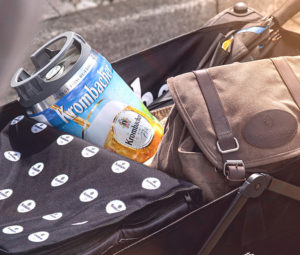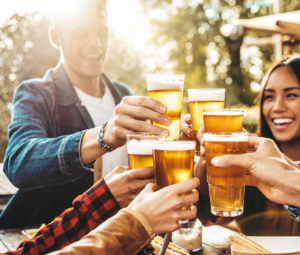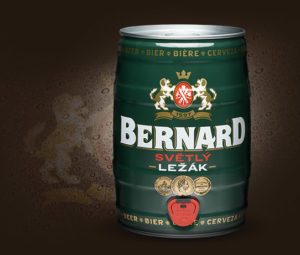2020 was a very special year, in many aspects. The whole world was under the influence of a pandemic and the virus Covid-19. A hard shutdown in Germany from mid-March until the end of June brought the whole economy to almost a standstill. On the upside these drastic measures contained the spread of the virus significantly. Now looking into the winter months, the situation has worsened again. This crisis was very tough on gastronomy. All localities all over Germany had been closed for several weeks. The whole event and festival business came to a complete standstill. Therefore: if people cannot consume outside the home anymore, they will consequently change their behavior. COVID and consumer behavior: Dirk Reinsberg, board executive at Bundesverband des Deutschen Getränkefachgroßhandels e.V. (BV-GFGH), gives insights into the backgrounds of the difficult COVID year. We talked to him:
COVID and consumer behavior: What has changed in 2020?
Mr. Reinsberg, as a board member of the Bundesverband des Deutschen Getränkefachgroßhandels you are responsible for 500 members, who all together produce round about 80 percent of the 23 billion Euro of the sector’s sales. You have a broad overview over the beverage industry. How would you describe the changes it underwent in 2020?
Dirk Reinsberg: our industry experienced a huge setback in 2020. Companies that interact in the business field of gastronomy and events had to face a significant decline in sales. Until this day there is almost no business at all for event or festival suppliers. If you would try to calculate the total sum of what would have been turned over in these areas before COVID, or in soccer stadiums for example, you will come to see that we talk about economic losses that can be existence threatening for many suppliers, dealers and operators. Luckily, pubs and restaurants only had been closed for a few weeks.
But consumer behavior has changed for this sector aswell. People now tend to frequent chic restaurants when they go out to enjoy high-quality food and beverages became more of a pleasant, but less important side topic. In 2020 significantly less beverages have been consumed in out-of-home markets. All the pubs, bars and clubs that used to achieve their main profits with beverages barely had any turn-over. As a consequence, wholesale numbers decreased drastically.
Due to the fact that people were not allowed to gather in public localities, pubs or restaurants, they consumed more beer at home. Therefore, sales figures increased for retail stores and traditional beverage markets where people could pick up their curbside orders. Thanks to this trend the five-liter-keg became more popular because people could still enjoy ice-cold draft beer at home with some friends or family. I have to make it clear, however, that this increase in retail sales did not make up in any way close for the losses in out-of-home markets. 2020 has been a very problematic year for our industry!
COVID and consumer behavior: the mini keg – a good source of revenue!
How would you rate the party keg in the context of total sales in 2020? What are the advantages for local retail stores?
Dirk Reinsberg: The party keg certainly made for a good source of revenue in 2020 because it stands for a distinct consumer experience. It symbolizes conviviality and being together with family and friends. A five-liter-keg is a very special type of container that can be staged very prominently in beverage stores. This kind of storytelling is very appealing for customers. Attractive displays and eye-catching placements make the product even more visible.
Are there any disadvantages to the party keg?
Dirk Reinsberg: As executive member of the BV GFGH I certainly support the use of recyclable containers whenever possible. From an ecologic point of view that is simply a must. Whenever recyclable containers are available, they should be used. The five-liter-party keg, however, offers possibilities for a certain size of beverage packaging that simply cannot be offered within the current reusable container range. Furthermore, experience shows that party kegs tend to be consumed at home and usually people make sure that they are disposed appropriately.
BV-GFGH and Envases
What do you think about the collaboration with Envases?
Dirk Reinsberg: Envases is supporting member of our organization and therefore we’re in constant communication with each other. I have made nothing but positive experiences in our collaboration so far. Envases is very supportive and always by our side in order to elaborate important market data and conduct events together. We interact on eye-level and a few years ago we have realized several campaigns together in collaboration with the manufacturers. Therefore, we installed special displays in retail stores to increase visibility for the 5-liter-kegs. The whole campaign was very successful, and we would do it again in a heartbeat. Thanks to supporting members like Envases our organization manages to stay up to date and is able to provide the most recent market information to our members.
Mr. Reinsberg, thank you very much for this interview!
Photo credit: BV-GFGH



